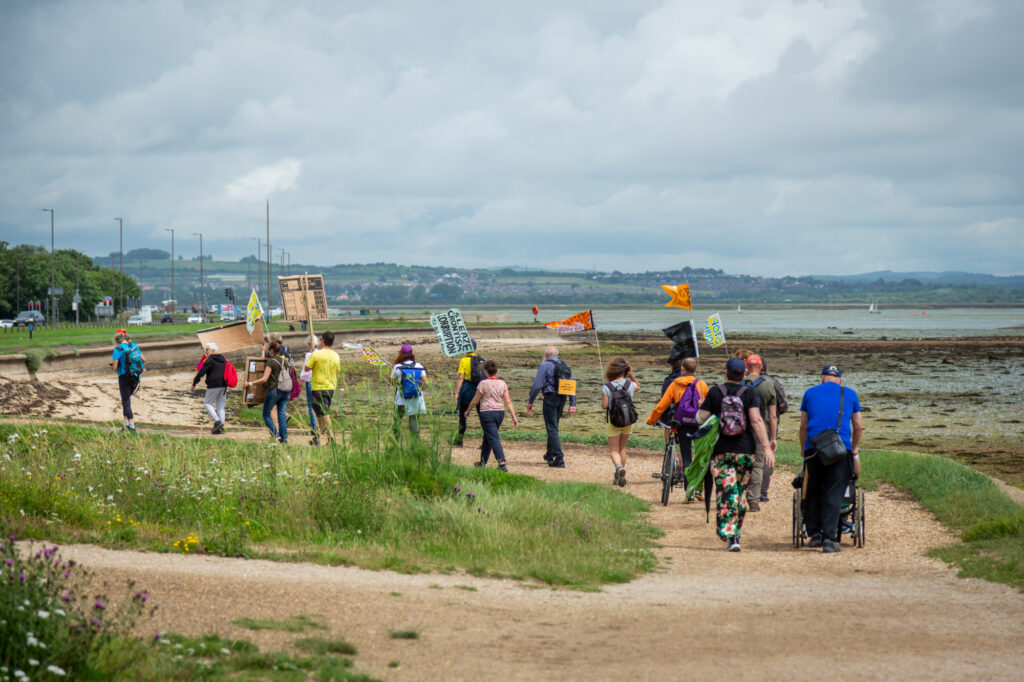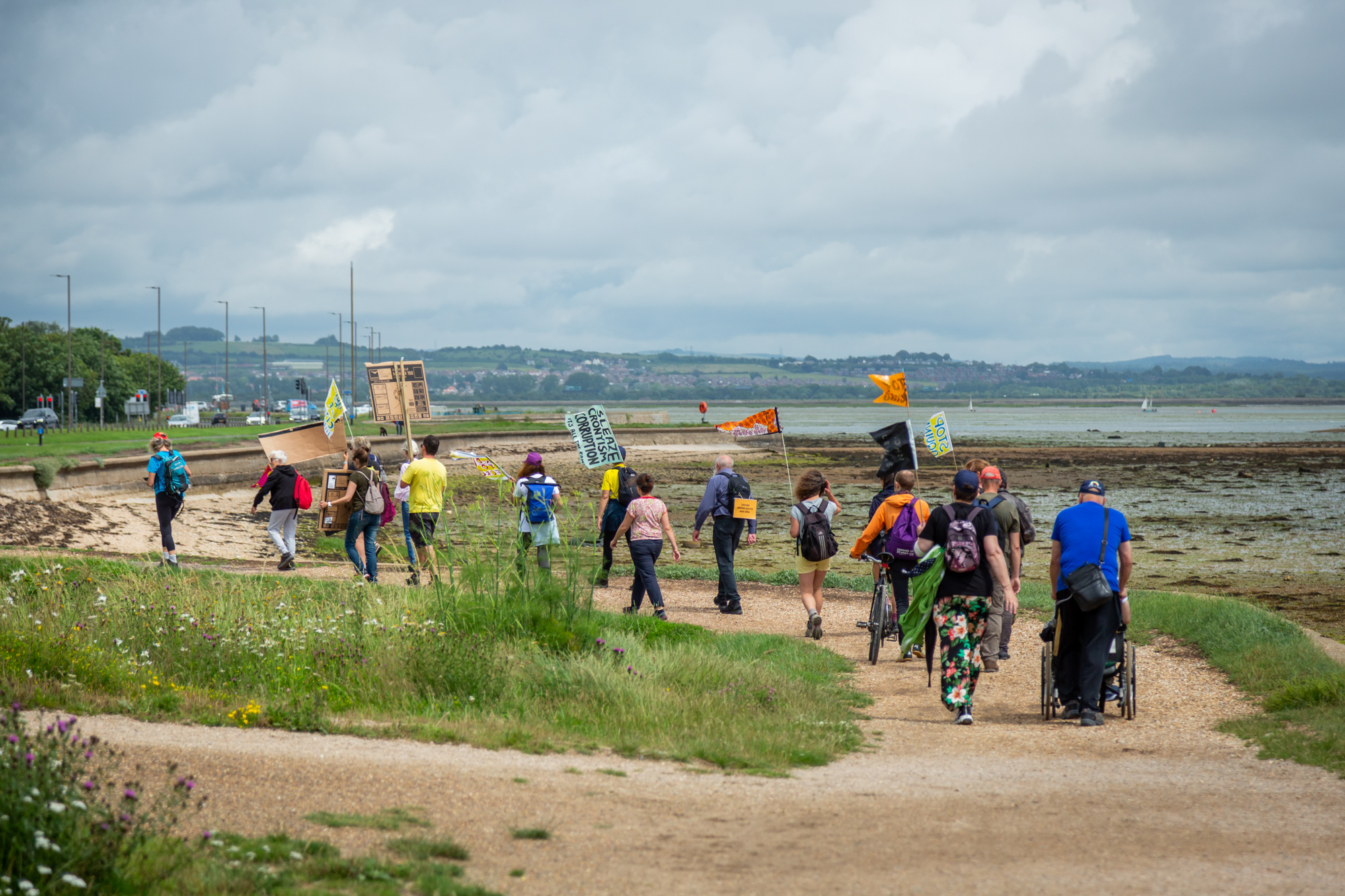It was unexpected, a day early and against the odds. Our phones started ringing, apps pinging. We had to pinch ourselves. Are you sure? Yes, the Business Secretary, Kwasi Kwarteng has refused Aquind planning permission for their interconnector. A week of celebration followed. We made the most of it – it’s rare for a community campaign to have a win. But now it’s time to take a reality check.
The government’s decision went against the Examining Authority’s conclusions that although there were adverse effects, the benefits of Aquind outweighed the disadvantages. Aquind has threatened a judicial review and, while this is expected, serves to remind us that this is not over. To add to the mix, we have a government paralysed by scandal and facing a conflict in Ukraine, post-Brexit changes to interconnector regulation and an energy crisis (not to mention the small matter of a climate crisis). All of these could impact on how the Aquind saga plays out and makes predictions and comment challenging. One thing is still clear – our opposition to Aquind and the reasons behind it.
We have always argued that the problem is the cumulative impact of construction on Portsmouth (the second most densely populated city in the UK). It’s not just about saving a listed cottage or the corner of a car park or avoiding traffic jams – it’s the total disruption to wildlife, residents, business and city infrastructure that matters. Similarly, at the other end of the cable corridor in the South Downs, residents face the impact of multiple energy projects – a new solar farm, Aquind convertor station and sub-station upgrade – a bit of landscaping as mitigation doesn’t really cut it.
We feel it’s important to put the government’s decision in the context it deserves. It is not a project that can be only understood through a planning lens. Nor can it be seen as a stand-alone project removed from the myriad of other interconnectors planned, approved and in the pipeline. To do so, plays into the hands of Aquind’s owners who are only too happy to be seen as saviours of the energy crisis, despite having prior and controversial involvement in Soviet-era oil pipelines.
We are not against interconnectors or renewable energy supplies from Europe; we support UK’s need for a flexible and renewable energy network that can trade excess wind, water and solar power. UK to Europe interconnection capacity-needs have been predicted by Good Energy as 15GW by 2050 and 18GW in the government’s Energy White Paper. By 2025, UK will have 15 interconnectors supplying 18GW and may well be a net exporter of energy. This is without Aquind.
From the onset, this project has been mired in controversy from political lobbying to at least £1.3 million in Aquind-related donations to the Conservatives. The suitability of Aquind for a project of this size and national importance has been questioned. The Pandora Papers exposed links between Aquind owner, Viktor Fedotov and corruption allegations. Both Portsmouth MPs have warned of a potential security risk should Aquind be given the green light.
The Secretary of State’s final decision was a surprise. Did he act on our concerns and the warnings from our city’s MPs or was he backed into a corner, having shown previous support for this project and now at risk of a public backlash given the Tories’ exposure to donations? Is a potential judicial review just necessary collateral to save face? Or are we waiting for legislation such as the Economics Crime Bill to put an end to this once and for all? It could be all of these or none and the only concrete reason we have is the one given in his final decision letter; that alternative routes had not been fully considered.
We are in total agreement that the climate crisis needs urgent action but the race to decarbonisation cannot take these kinds of short-cuts – cosy relationships with business, cash for access, revolving doors and flawed due diligence. To do so risks lining the pockets of a kleptocracy who are complicit in the multiple crises the world faces, and risks cutting communities off from decision-making. To build a better world and rapidly, communities must be meaningfully involved in transparent planning processes and national infrastructure projects must be for the benefit of all.
Stop Aquind



Hi there, I’m a postgraduate student in Photojournalism from London College of Communication. I’m quite interested in your campaign and sincerely gratified for your victory. I’ve visited Portsmouth a week ago and done some fieldworks there. I’m wondering if there’s any photography and visual representation work I can do or assist with you. Please kindly send me an email about it.